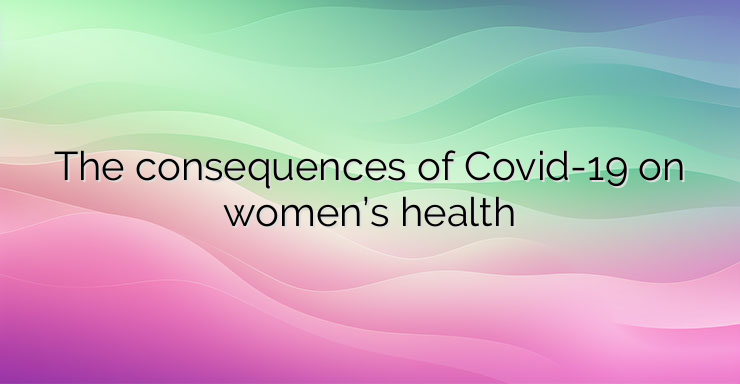From the beginning of the pandemic, it was clear that COVID-19 does not affect everyone equally. A February 2020 report from the Chinese Center for Disease Control and Prevention showed that the elderly and people with cardiovascular disease and diabetes are getting sicker than younger, healthier people. It took a little longer for the gender effect to emerge, but by July 2020 it was clear that more men were dying of the disease than women. Since then, we’ve learned a lot more about COVID-19 and the possible effects it has on women’s health. At the start of the pandemic, pregnant women were advised to take special precautions to avoid becoming infected. In fact, the International Federation of Gynecology and Obstetrics has recommended that routine prenatal care be canceled or done via video calls. The reason for this advice is that the risk of developing severe acute respiratory syndrome is greater in pregnant women. During pregnancy, the body changes in a number of ways to create a better environment for the developing fetus. Certain adaptations to pregnancy have the potential to affect the body’s response to COVID-19. For example, the lungs change in a way that can increase the risk of severe infection, and there are changes that make blood clotting more likely. Much attention has been paid to changes in the immune system of pregnant women. On the one hand, these changes can make it more difficult to clear the virus from the body. On the other hand, they could weaken severe symptoms of COVID-19, which are caused by an overreaction of the immune system. Overall, we still don’t have enough data to know for sure how COVID-19 affects pregnancy. Most pregnant women who contract COVID-19 have no symptoms or experience mild discomfort with no lasting effects. Some medical centers reported an increase in hospital admissions for pregnant women, while others did not. More data is needed to understand the differences between the two. In addition to pregnancy, the Covid infection also affects the menstrual cycle in most women. There are mixed data on menstrual changes in female patients even after recovery. These menstrual changes include both reduced and heavier cycles, longer periods, irregular periods, and the passage of larger blood clots. Although some of these changes have been reported in peer-reviewed articles, there are not many studies available that explain what is happening. In some of the patients with Covid, changes in the levels of sex hormones are observed during the infection. This could explain the menstrual changes during the infection. But it in no way explains the changes that occur after recovery. Some people experience debilitating symptoms such as fever, fatigue, or headache for weeks after the infection clears. This is called “long COVID”. About 80% of people who report long-term symptoms of the disease are female. Women with long-term COVID report changes in their menstrual cycle,which can be extra exhausting. It is not yet clear what causes the menstrual cycle changes seen in long-term COVID. Doctors raise various hypotheses, such as increased stress and hormonal changes caused by the infection. There is also the possibility that some people have other undiagnosed illnesses. Source: https://www.asbmb.org/asbmb-today/science/051121/covid-19-women-physical-health


Leave a Reply